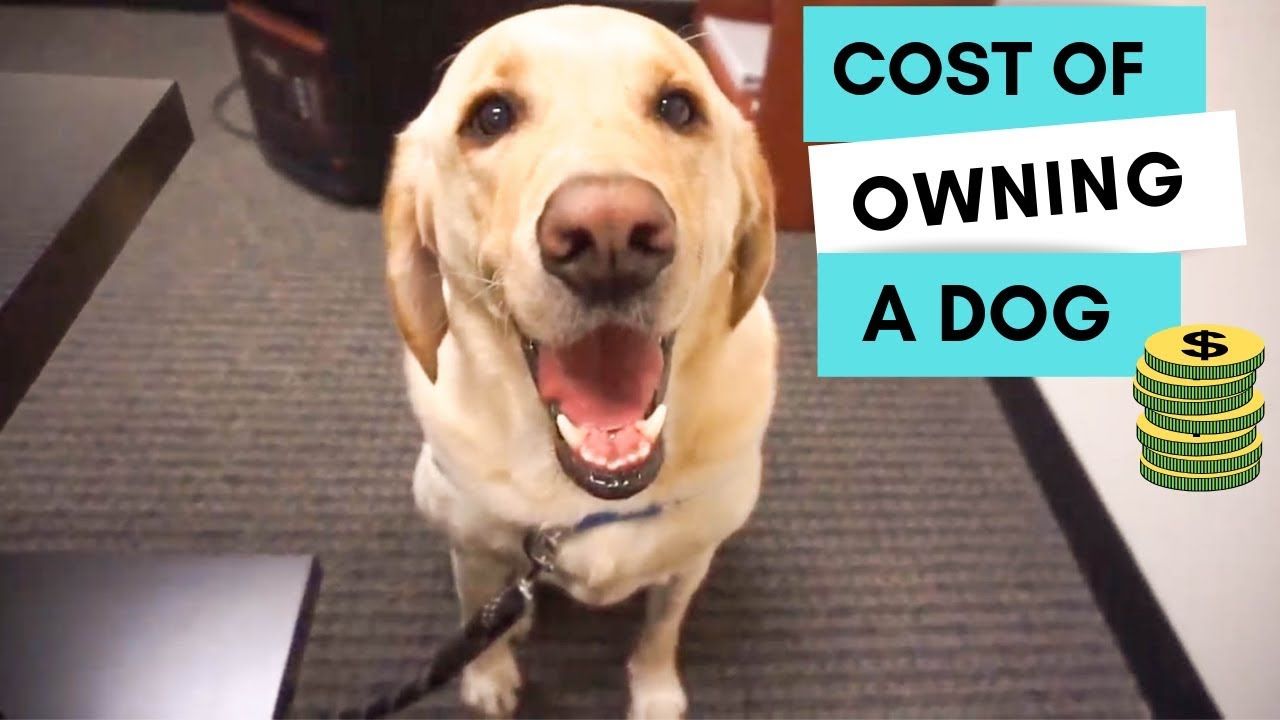The cost of puppy training involves various factors. The usual cost of group classes is between $50 and $150. At the same time, private sessions may cost $75 to $200 per hour. Location, duration, trainer expertise, and specialized training needs influence costs. Investing in early training fosters a well-behaved and harmonious relationship with your furry friend.
Importance of Puppy Training
Puppy training is paramount for a harmonious bond between you and your furry friend. The importance of puppy training extends beyond basic commands, shaping positive behaviour and fostering a lifelong connection. A well-trained pup ensures a stress-free coexistence and prevents future behavioural issues. Investing time and effort in early training reaps long-term rewards, creating a happy and well-adjusted canine companion. Embrace the significance of puppy training to embark on a fulfilling journey with your four-legged family member.
The Cost Factor
While the benefits of puppy training are evident, many pet owners wonder about the financial aspect. This guide will delve into the factors influencing puppy training costs and provide insights into making cost-effective choices.
Factors Affecting Puppy Training Costs
Puppy training costs can vary significantly, influenced by several key factors that every pet owner should consider. Firstly, your puppy’s breed plays a crucial role; different breeds may require specialized training, impacting the overall cost. The age of your furry friend is another determinant, as younger puppies may have a steeper learning curve. The chosen training methods and the trainer’s expertise also contribute to the final expenses.
Pet owners can make well-informed decisions about their investment in puppy training by being aware of these factors. By acknowledging the nuances of each element, you can navigate the diverse landscape of puppy training costs, ensuring both effective training and financial prudence in nurturing your canine companion.
Breed Differences
Breed differences play a pivotal role in shaping your puppy’s training needs. Understanding these distinctions is essential for effective and tailored training sessions. From energy levels to temperament, each breed comes with its unique characteristics.
Whether you have a lively Border Collie or a laid-back Bulldog, acknowledging these breed-specific traits ensures a training approach that resonates with your furry friend. Embrace the diversity in breeds, and tailor your training strategy to create a harmonious and successful learning experience for your puppy.
Age and Learning Curve
The puppy training journey involves understanding the intricate dance between age and the learning curve. Puppies, like humans, have varying capacities for absorbing information as they grow. This dynamic relationship between age and the learning curve plays a pivotal role in shaping the effectiveness and duration of training sessions.
Discover how tailoring training methods to match your puppy’s developmental stage can lead to successful and harmonious learning experiences. Unlock the secrets of age-appropriate training for a well-behaved furry companion.
Training Methods
Training methods are pivotal in shaping your puppy’s behaviour. From positive reinforcement to clicker training, the choice of techniques profoundly influences the learning experience. Selecting effective training methods ensures a positive and successful journey in fostering good behaviour. Explore various approaches to discover the one that resonates best with your furry companion, promoting a happy and well-behaved pet.
Trainer Expertise
In puppy training, the impact of Trainer Expertise cannot be overstated. A skilled and experienced trainer brings a wealth of knowledge to the table, tailoring their approach to the unique needs of your furry companion. The right expertise ensures effective communication, quicker learning, and a positive training experience. When considering puppy training options, prioritize a trainer with the expertise to guide your pup toward obedience and well-rounded behaviour. Choose expertise for a training journey that prepares your furry friend for success.
Tips for Cost-Effective Puppy Training

The diverse world of puppy training programs is essential for nurturing a well-behaved and happy canine companion. Understanding the “Types of Puppy Training Programs” is a key step for pet owners seeking the most effective approach. These programs cater to various needs, offering tailored solutions for pups and their owners.
Group classes provide socialisation opportunities, fostering community among furry friends. Private sessions offer individualised attention, addressing specific behavioural concerns. For those with busy schedules, board-and-train programs provide an intensive and immersive training experience.
Exploring the nuances of each type allows pet owners to choose the program that aligns best with their puppy’s needs and lifestyle. In this dynamic landscape, discovering the right training program sets the foundation for a lifelong bond between you and your furry friend.
Group Classes: Group classes offer socialization opportunities but may vary in cost. We’ll discuss the advantages and disadvantages of this popular training format.
Private Sessions: Individualized attention comes at a price. We’ll explore the benefits of private sessions and whether they align with your budget.
Board-and-Train Programs: Board-and-train programs provide an intensive training experience for busy owners. We’ll weigh the costs against the convenience.
Additional Costs in Puppy Training
The puppy training journey involves more than just the trainer’s fee. Understanding the additional costs associated with this process is crucial for pet owners. Beyond the professional guidance, there are supplementary expenses to consider. Essential training supplies, such as leashes, collars, and training treats, contribute to the overall investment. Positive reinforcement, a cornerstone of effective training, often involves the purchase of treats and rewards.
Additionally, follow-up sessions may be recommended for continued success, incurring further costs. Pet owners should be aware of these supplementary expenses to ensure a comprehensive approach to puppy training. Preparing for the additional costs facilitates a smoother training process and helps in budgeting effectively for the overall well-being and development of the furry family member.
Training Supplies: Beyond the trainer’s fee, there are additional costs for training tools and equipment. We’ll provide a checklist of necessary supplies and their potential expenses.
Treats and Rewards: Positive reinforcement relies on treats and rewards. We’ll discuss how these incentives contribute to the overall cost of training.
Follow-Up Sessions: Continued support may be necessary for sustained success. We’ll explore the need for follow-up sessions and their associated costs.
DIY Puppy Training vs. Professional Help
The journey of training your new furry friend sparks the age-old debate: DIY Puppy Training vs. Professional Help. DIY training allows for a hands-on, personal approach, fostering a deeper connection with your pup. It’s cost-effective, but success depends on consistency.
Conversely, opting for professional help ensures expertise and structured guidance. Trainers navigate challenges, tailoring strategies to your pup’s unique needs. However, the cost may be higher. The decision hinges on time, budget, and your dog’s temperament.
DIY enthusiasts cherish the bonding experience, while those seeking efficiency and immediate results often turn to professionals. Ultimately, whether you choose a DIY route or enlist professional assistance, the key lies in creating a positive and enriching training experience for your furry companion.
Pros and Cons: Is the investment in professional training worth it, or can you achieve success through a DIY approach? We’ll balance the benefits and drawbacks to assist you in making a wise choice.
Cost Comparison: A comparison between the costs of professional training and the expenses of DIY methods will guide you in choosing the most cost-effective route.
Tips for Cost-Effective Puppy Training

Puppy training is essential to your furry friend’s well-being, but the costs can increase. Here are some invaluable “Tips for Cost-Effective Puppy Training” to ensure you get the best bang for your buck. Firstly, research local trainers to find budget-friendly options without compromising quality. Many trainers offer group discounts, making it a cost-effective choice for owners with multiple puppies.
Explore online resources and DIY methods, leveraging the digital age to access valuable training materials. When reviewing contracts, be vigilant for hidden fees and understand the refund policies if the training fails to meet expectations. By employing these tips, you can navigate the world of puppy training expenses while providing your pup with the best start in life. Happy training!
Researching Local Options: Understanding the local training landscape can reveal budget-friendly alternatives. We’ll provide tips on researching and comparing options in your area.
Group Discounts: Some trainers offer group discounts for multiple participants. We’ll explore how this can be a cost-saving option for pet owners with more than one puppy.
Online Resources: The digital age brings forth online resources. We’ll discuss how utilizing online platforms can be a cost-effective solution for puppy training.
Puppy Training Contracts
The journey of puppy training comes with the inevitable need for a puppy training contract. These agreements, often overlooked, play a crucial role in shaping your furry friend’s learning experience. Puppy training contracts outline the training program’s terms, conditions, and costs, ensuring transparency between the trainer and the pet owner. It’s vital to scrutinize these documents for hidden fees and comprehend refund policies before committing. A well-crafted contract sets expectations, covering aspects like the training methods employed, the duration of sessions, and any additional supplies required. By delving into the specifics of puppy training contracts, you safeguard your budget and lay the foundation for a successful and positive training journey for your beloved canine companion.
Hidden Fees: Not all costs may be transparent. We’ll highlight potential hidden fees in training contracts, ensuring you are fully informed before committing.
Refund Policies: trainers’ refund policies are essential if the training doesn’t meet expectations. We’ll guide you on what to look for in these policies.
Real-Life Cost Examples
Investing in puppy training is a commitment that often comes with cost questions. Understanding what to expect can make the decision-making process smoother. One crucial aspect is the “Real-Life Cost Examples” associated with puppy training. Let’s delve into practical scenarios to provide clarity. Take, for instance, basic obedience training. In a real-life case study, the costs typically include the trainer’s fee, training supplies, and any additional follow-up sessions. For those dealing with specific behavioural issues, such as aggression or anxiety, behaviour modification becomes a necessity. Examining real-life cases in this context reveals the comprehensive nature of training costs, ensuring pet owners are well informed. Remember, these examples offer insights into the required investment, emphasizing the value that professional puppy training brings to you and your furry companion.
Case Study 1: Basic Obedience Training: We’ll provide a real-life example of the costs associated with basic obedience training, giving you a practical understanding of what to expect.
Case Study 2: Behavior Modification: A case study on behaviour modification costs will offer insights into the investment required for those with specific behavioural concerns.
Investing in Puppy Training: Long-Term Benefits
Puppy training is not just a short-term fix; it’s a lasting investment in your canine companion’s well-being. The long-term benefits of proper training extend beyond obedience commands. By investing time and resources in your puppy’s education, you’re fostering positive behavioural development. This investment strengthens your bond with your furry friend, creating a harmonious and enjoyable companionship. Moreover, well-trained puppies are less likely to develop behavioural issues, saving you from future challenges and expenses. So, when contemplating the cost of puppy training, consider it as a valuable investment in your pet’s future happiness and long-term peace of mind. Start today and reap the rewards of a well-trained and well-adjusted furry family member.
Behavioural Development: Investing in puppy training goes beyond immediate results. We’ll explore the long-term benefits, focusing on the positive behavioural development of your furry companion.
Strengthening the Bond: The training process builds a strong bond between you and your puppy. We’ll discuss how this bond contributes to a harmonious relationship.
Avoiding Future Costs: Well-trained puppies are less likely to develop behavioural issues. We’ll highlight how investing in training early can potentially save you from
Conclusion
While the cost of puppy training may vary, it is an investment in your puppy’s well-being and household harmony. By understanding the factors that influence training costs and exploring different options, you can make an informed decision that aligns with your budget and your puppy’s needs. Remember that a well-trained and well-behaved puppy brings joy to your home and strengthens the lifelong bond between you and your furry companion.
FAQ
What is The Best Age to Start Training a Puppy?
8 weeks
This lays a solid foundation that will carry over into adulthood. Providing your puppy with fundamental training and socialization will help them develop into self-assured adult dogs. When your dog is 8 weeks old, training begins the week after they are brought home.
How Many Days Does it Take to Train a Puppy?
Usually, the duration varies. It typically takes six weeks to teach your dog the fundamentals. On the other hand, short, biweekly training sessions take nine weeks, while lengthy daily sessions take longer than four. You will then receive a trained dog after that.
Are Trained Dogs Expensive?
Trained Service Dog Costs
The National Service Animal Registry states that the typical up-front cost for a service dog is between $15,000 and $30,000. Depending on their specific tasks and responsibilities, some can even cost upwards of $50,000.
How Much Training a Day Does a Puppy Need?
Daily, you will plan brief training sessions to instruct and rehearse their commands. You might only be able to keep a puppy’s attention for five to ten minutes when they are younger and ten to fifteen minutes when they are older.
What Age is Too Late to Train a Puppy?
It’s always possible to start dog training.
Addressing problems like poor recall or pulling on the lead is always possible. In fact – as your dog ages, it’s important for their physical and mental health that they have good manners.

